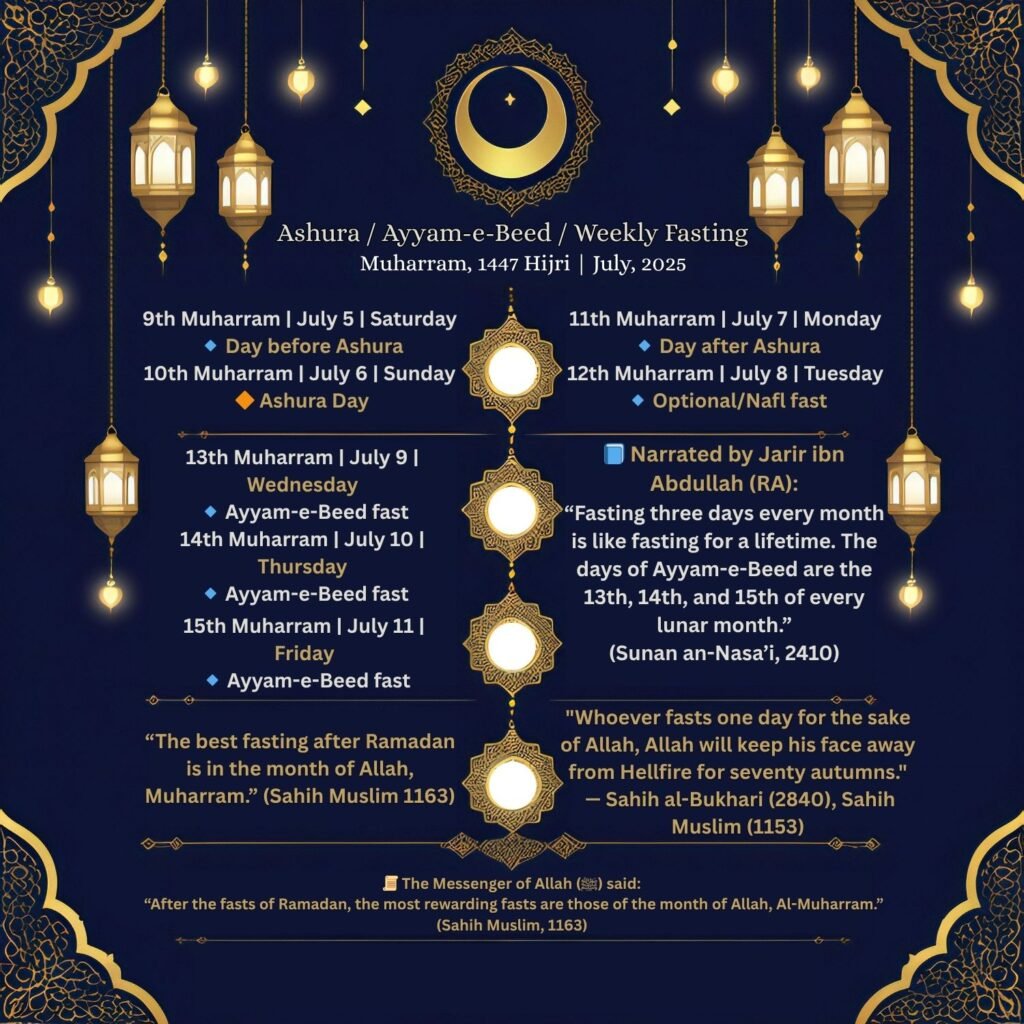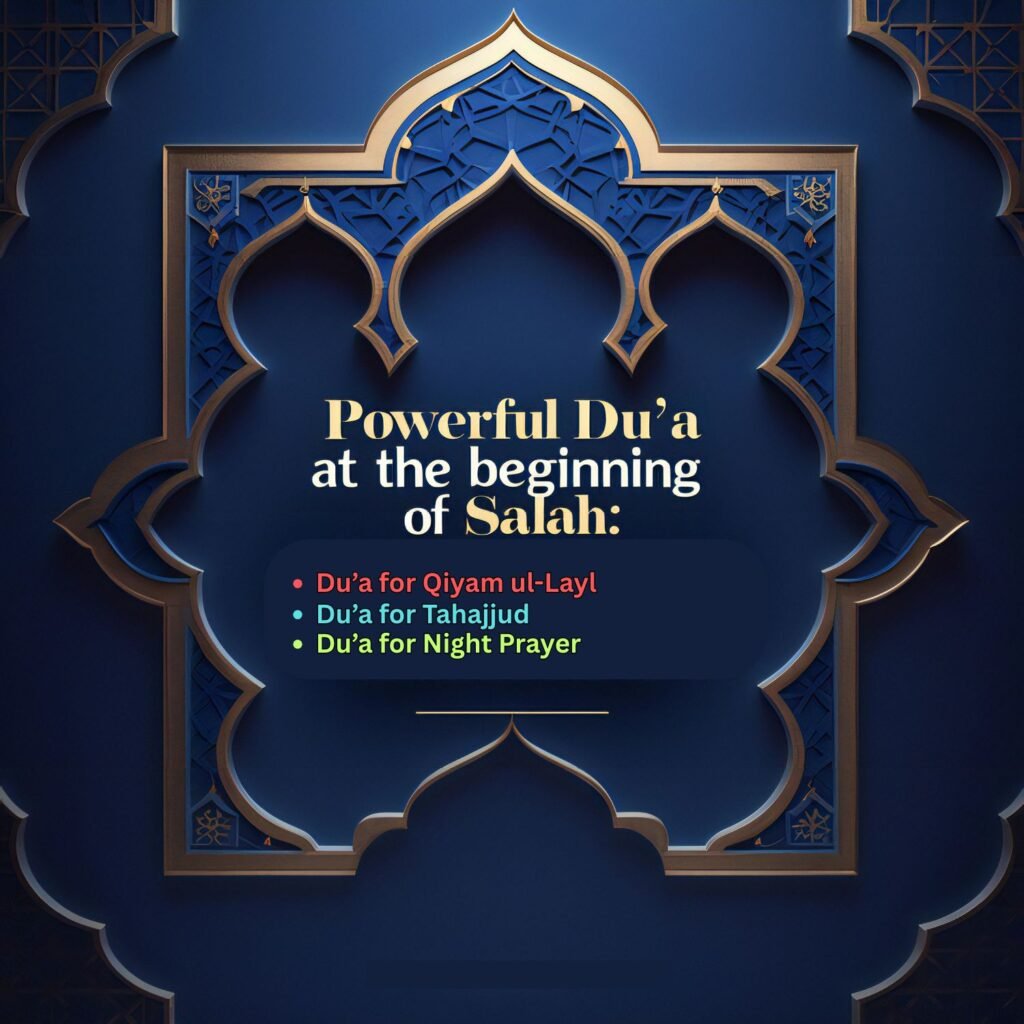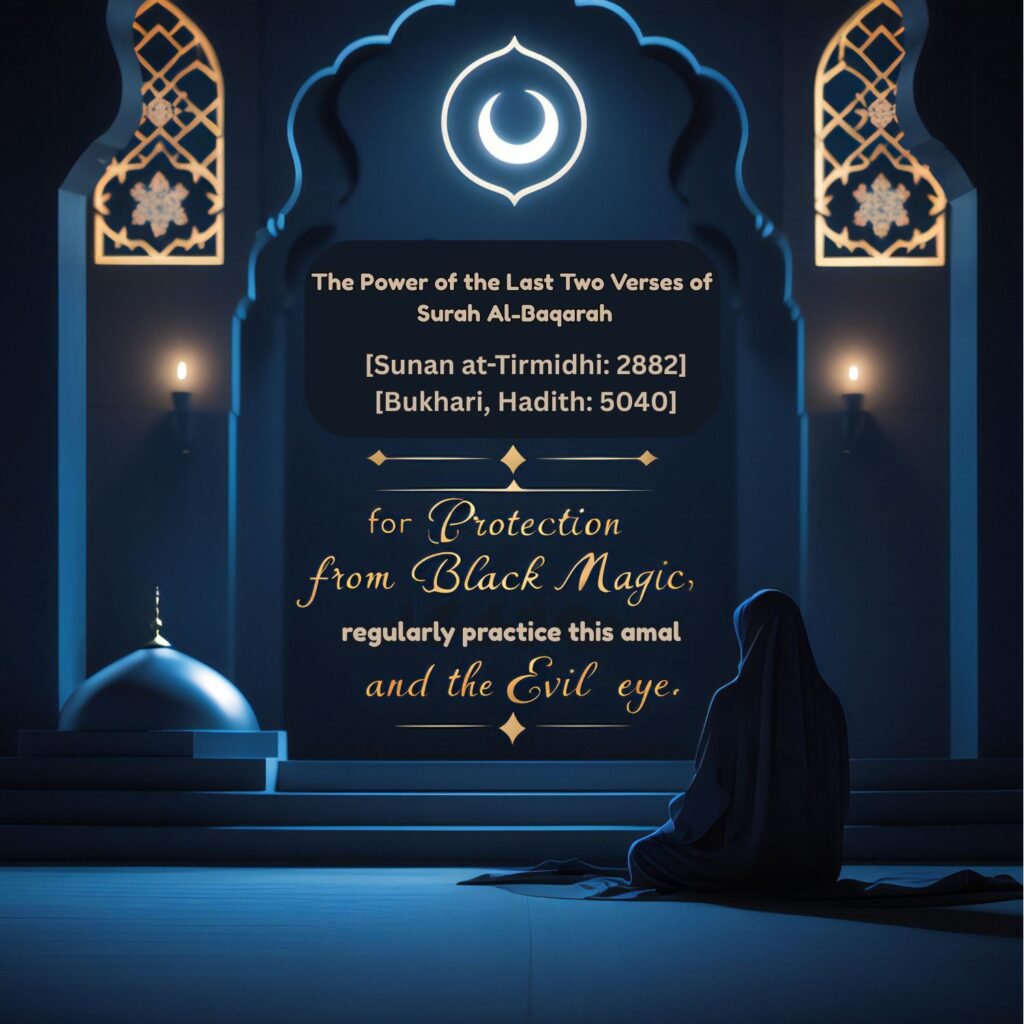Islamic Dhikr during Azan with English transliteration and Hadith reference
Dhikr (Remembrances) of Adhan
The listener should repeat what the Mu’adhdhin (caller to prayer) says, except when he says:
حَيَّ عَلَى الصَّلَاةِ وَحَيَّ عَلَى الْفَلَاحِ
Come to prayer, come to success
Hayya ‘alas-Salah, Hayya ‘alal-Falah
At this point, one should say:
لَا حَوْلَ وَلَا قُوَّةَ اِلَّا بِاللّٰهِ
There is no power to avoid evil or strength to do good except with the help of Allah. [1]
La hawla wa la quwwata illa billah
After the Mu’adhdhin recites the Tashahhud (i.e., Ashhadu anna Muhammadan…), the listeners should say this Dhikr:
وَاَنَا اَشْهَدُ اَنْ لَّآ اِلٰهَ اِلَّا اللّٰهُ وَحْدَهُ لَا شَرِيْكَ لَهُ وَ اَنَّ مُحَمَّدًا عَبْدُهٗ وَرَسُولُهٗ، رَضِيْتُ بِاللّٰهِ رَبًّا، وَبِمُحَمَّدٍ رَسُولًا، وَبِالْاِسْلَامِ دِيْنًا
I bear witness that there is no deity worthy of worship except Allah, alone, with no partner. I also bear witness that Muhammad (peace be upon him) is His servant and messenger. I am pleased with Allah as my Lord, with Muhammad (peace be upon him) as my Messenger, and with Islam as my religion.
Wa ana ash-hadu alla ilaha illallahu wahdahu la sharika lahu, wa anna Muhammadan ‘abduhu wa rasuluh, radiytu billahi rabban, wa bimuhammadin rasulan, wa bil-islami dinan.
Sa’d ibn Abi Waqqas (RA) said, the Messenger of Allah (SAW) said:
“Whoever hears the Mu’adhdhin and says these phrases will have all his sins forgiven.” [2]
After completing the responses to the Mu’adhdhin’s phrases, one should say:
اللّٰهُمَّ رَبَّ هٰذِهِ الدَّعْوَةِ التَّاۤمَّةِ، وَالصَّلَاةِ الْقَاۤئِمَةِ، اٰتِ مُحَمَّدًا الْوَسِيْلَةَ وَالْفَضِيْلَةَ، وَابْعَثْهُ مَقَامًا مَحْمُوْدًا الَّذِيْ وَعَدتَّهُ، اِنَّكَ لَا تُخْلِفُ الْمِيْعَادَ
O Allah! Lord of this perfect call and the established prayer! Grant Muhammad (peace be upon him) the Wasilah (a station in Paradise) and virtue, and raise him to the praiseworthy station You have promised him. Verily, You do not break Your promise. [3]
Allahumma rabba hadhihid-da‘watit-tammah, was-salatil-qa’imah, aati Muhammadan al-wasilata wal-fadilah, wab‘ath-hu maqaman mahmudan alladhi wa‘adtah, innaka la tukhliful mi‘ad.
Abdullah ibn Amr (RA) said, the Messenger of Allah (SAW) said:
“When you hear the Mu’adhdhin calling the Adhan, say what he says, then send blessings (Salat) upon me. Whoever sends one Salat upon me, Allah will send ten mercies upon him. Then ask Allah to grant me the Wasilah, for it is a place in Paradise that only one of Allah’s servants will be granted, and I hope to be that servant. Whoever asks Wasilah for me, my intercession will become obligatory for him.” [4]
Wasilah means nearness. It is the highest level in Paradise, closest to the Throne of Allah, and it is designated for one servant of Allah. That servant is Muhammad (SAW).
Jabir ibn Abdullah (RA) said, the Messenger of Allah (SAW) said,
“Whoever hears the Mu’adhdhin and says the above phrases, my intercession will be guaranteed for him on the Day of Resurrection.” [5]
Between the Adhan and the Iqamah, one should make personal Du‘a, because Du‘a made during this time is not rejected. [1]
Abu Hurairah (RA) said:
“We were with the Messenger of Allah (SAW), and Bilal (RA) gave the Adhan. When it ended, the Messenger of Allah (SAW) said:
‘Whoever says what this caller has said with certainty in his heart will enter Paradise.’”
This Hadith is Hasan. [6]
References:
[1] Bukhari, 1/152, No. 611, 613; Muslim, 1/288, No. 383
[2] Muslim 3/1557, No. 1967; Al-Bayhaqi 9/287 (Middle part in brackets from Al-Bayhaqi)
[3] Ahmad 3/419, No. 15461, Sahih Isnad; Also see Ibnus Sunni, No. 637; Arna’ut authenticated it in his Takhrij of Tahaawiyyah, p.133; Majma‘uz Zawa’id 10/127
[4] Muslim (Kitab al-Salah, Bab: Recommendation of Saying the Like of What the Mu’adhdhin Says…), 1/288, No. 384
[5] Bukhari (Kitab al-Adhan, Bab: The Supplication at the Time of the Call), 1/222, No. 589
[6] Sahih Ibn Hibban 4/553; Al-Mustadrak of Hakim 1/321; Albani, Sahih al-Targhib 1/177








